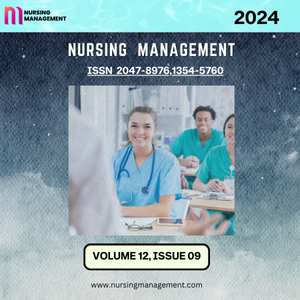Menu
Volume 10 Issue 12
The Use of 360-Degree Video in Developing Emotional Coping Skills (Reduced Anxiety and Increased Confidence) in Mental Health Nursing Students: A Protocol Paper
Caroline Laker,Pamela Knight-Davidson,David Hawkes,Paul Driver,Maxine Nightingale,Ann Winter andAndrew McVicar
1Emergency Department, Al-Amal Psychiatric Hospital, Qassim, Buraydah 52326, Saudi Arabia
2Medical Surgical Nursing Department, College of Nursing, University of Hail, Hail 55476, Saudi Arabia
3College of Nursing, King AbdulAziz University, Jeddah 22252, Saudi Arabia
4Department of Nursing, Qassim University, BSN, RN, Riyadh 52571, Saudi Arabia
5Faculty of Health Sciences, Beirut Arab University, Beirut 11-5020, Lebanon
Author to whom correspondence should be addressed.
Abstract
This narrative case study portrays a young woman’s life experience and adjustment process after suffering a traumatic spinal cord injury (SCI) 5 years ago. It is analyzed retrospectively from the perspective of the middle-range theory (MRT) of adapting to chronic health conditions by Buckner and Hayden (2014), and Ricoeur’s narrative philosophy is expanded. Understanding Alice’s narrative from this perspective allows us to understand the process of adaptation to a condition of disability due to a spinal cord injury, from the perspective of a nurse who was forced to change her role as a caregiver to a role of being cared for, due to the changes in her body and her corporality due to the consequences of the injury. In this narrative, the focal and contextual stimuli, the coping processes with special emphasis on the intrinsic and extrinsic adaptive processes, and the results of the process are identified.
Keywords: spinal cord injury; Ricoeur; adaptation; chronic conditions
Editorial Board
Editor-In-Chief
Christopher J. Hayes, University of California, BerkeleyCalifornia
Associate Editors
David P. Williams, Johns Hopkins University
Sophia L. Brooks, University of Sydney
Arjun K. Mehta, University of Cambridge
Isabella S. Johnson, University of Toronto
Eli T. Garcia, University of Oxford
Grace M. Lewis, Stanford University
Mason R. Chen, University of Melbourne

